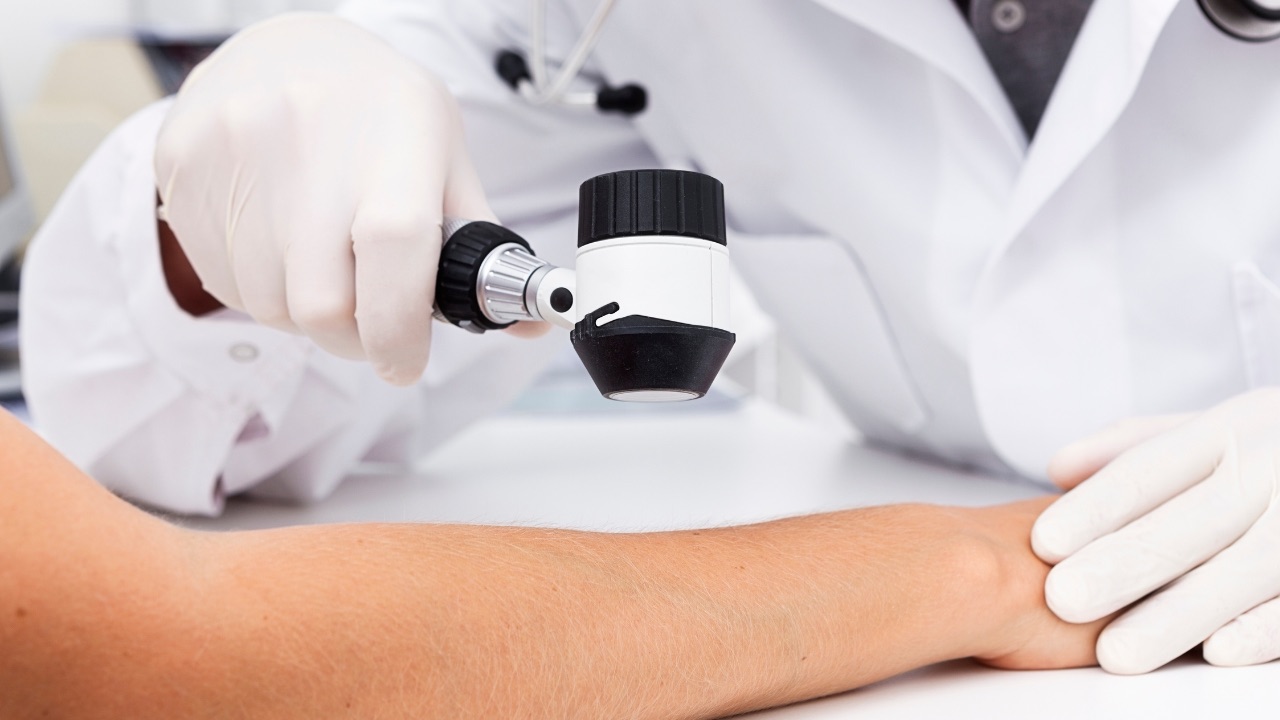This Little Light of Mine- All About Dermoscopy!
Apr 03, 2023
If you've been to the dermatologist recently for a skin check, you may have noticed your doctor using a little light to examine your skin. And you may have thought, 'that's a funny looking magnifying glass!' Well, it's actually called a dermatoscope and it plays a vital role in the diagnosis of various skin conditions.
Let me tell you more about how and why dermatologists use dermoscopy to help diagnose skin conditions.
Dermoscopy, also known as epiluminescence microscopy, is the use of a handheld device called a dermatoscope to examine skin lesions beyond the surface level. The dermatoscope has a magnifier of usually 10x plus a light source that uses principles of light physics to amplify subsurface skin structures.
Why is this important?
Dermoscopy helps us examine skin lesions beyond the surface, providing us with additional clues about their nature. This is important because it helps in identifying whether a lesion is benign or malignant, avoiding unnecessary skin biopsies. It also allows us to make more accurate diagnoses and therefore recommend a more effective treatment plan.
Here are some of the ways that dermoscopy can be beneficial:
- Early detection of skin cancer
- Improved accuracy in diagnosis
- Improved patient outcomes
- Better monitoring of skin lesions
Even though dermoscopy is commonly used to examine pigmented lesions such as moles and melanomas, it can also be used to diagnose other skin cancers such as basal cell carcinomas and squamous cell carcinomas. Recently, dermoscopy has expanded its use to include the evaluation of rashes, infectious conditions, and other skin, hair, and nail conditions.
Dermoscopy is particularly helpful in identifying scabies, an itchy rash caused by the Sarcoptes scabiei mite. Dermatologists can easily identify the burrows under the skin and look for the classic 'delta' sign where the mite can be found. Identifying these 'tell-tale' signs can enhance the accuracy and specificity of dermatologists in making diagnoses, eliminating the need for additional tests in some cases.
So the next time you see your dermatologist using this little light, know that this small but mighty tool is actually helping them to provide you with a more precise diagnosis of your skin!
Check out the latest podcast episode with Dr. Lori Fiessinger where we delve into the basics of dermoscopy, including how it works and why it's important.
***A new podcast is released every Tuesday***






